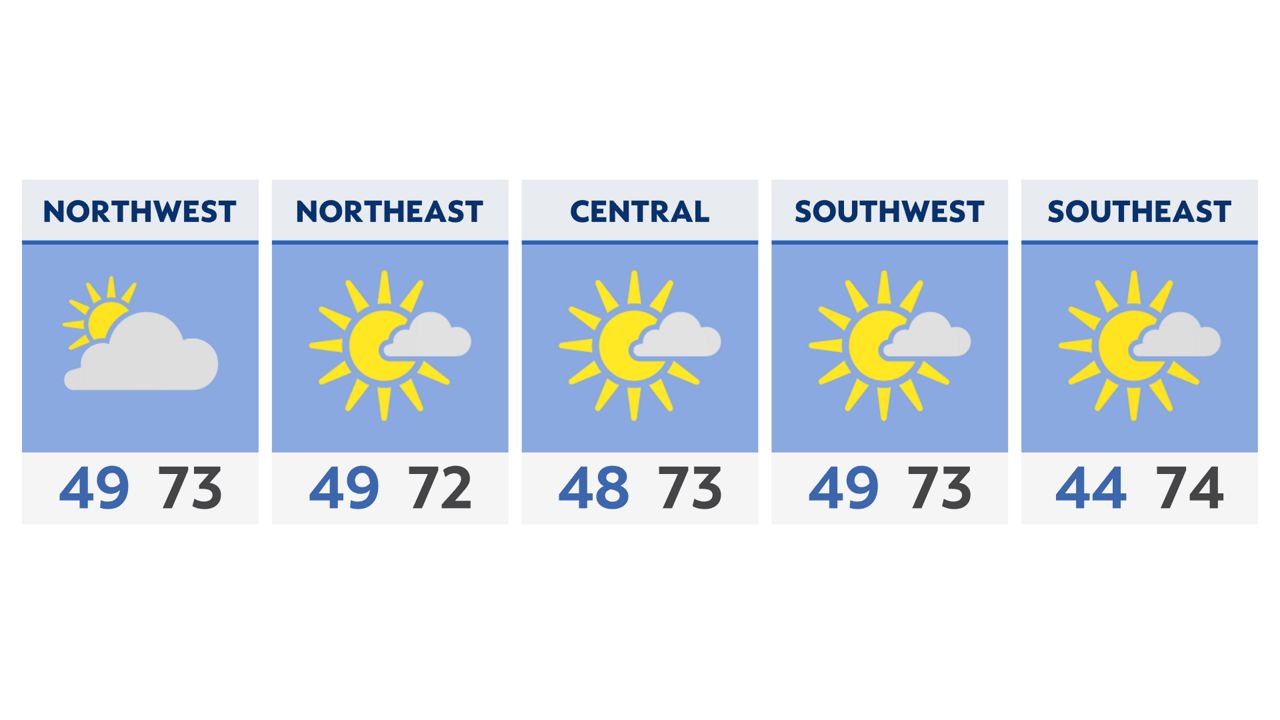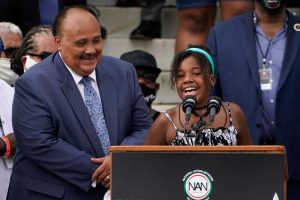President Joe Biden is spending Tuesday holding a series of talks with different factions of his party to try to move his sweeping spending plan closer to the finish line.
What You Need To Know
- President Joe Biden is spending Tuesday holding a series of talks with different factions of his party to try to move his sweeping spending plan closer to the finish line
- The president first met with progressives, followed by a sit-down with moderate Democrats
- Biden’s budget package aims to expand social services such as health and child care while addressing the climate crisis
- House Speaker Nancy Pelosi, D-Calif., has set an Oct. 31 deadline for passing the budget reconciliation bill, along with the $1 trillion infrastructure plan already approved by the Senate
The president met with progressives, who are trying to salvage as much as possible of a package that already has seen its price tag slashed nearly in half from the $3.5 trillion it once was.
After the meeting, Washington Rep. Pramila Jayapal, the chair of the Congressional Progressive Caucus, described the sit-down with Biden, Vice President Kamala Harris and Treasury Secretary Janet Yellen as “really good” and “productive.”
“I think we all feel still even more optimistic about getting to an agreement on a really transformational bill that will fundamentally lift people up with the priorities that the Progressive Caucus had laid out five months ago, we feel very good that the majority of those of those priorities will be in this bill,” Jayapal said.
Jayapal said that the figure President Biden has laid out for the spending bill, which would provide funding for key Democratic priorities including paid family leave and provisions to fight climate change, is around $1.9 to $2.2, but noted that “it’s not the number that we want.”
“We have consistently tried to make it as high as possible,” Jayapal conceded. “But at the end of the day, the idea that we can do these programs, a multitude of programs, and actually get them going so that they deliver immediate transformational benefits to people is what we’re focused on.”
“Paid family and medical leave is a priority of ours,” Jayapal said, and noted that while Democrats “don’t have all the details on the climate pieces yet,” she added “we’re hopeful that we’re going to get to a significant investment in climate.”
“The president is the inspirer, he is the closer,” Jayapal said of Biden. “He is the convincer, the mediator-in-chief. He really is doing a phenomenal job.”
Jayapal called the meeting, which lasted roughly two hours, “conversational,” and said that in terms of a timeline, they are “trying to get to a real close as quickly as possible.”
That meeting was scheduled to be followed by a sit-down between Biden and moderate Democrats who were largely uncomfortable with the original size and scope of Biden’s budget package, which aimed to expand social services such as health and child care while addressing the climate crisis.
White House press secretary Jen Psaki said the goal for Tuesday was not to reach a top-line number on the package, but simply to “make progress.”
Noticeably excluded from the later meeting were Sens. Joe Manchin of West Virginia and Kyrsten Sinema of Arizona. But Psaki said Biden met with the two senators Tuesday morning.
When asked about Biden’s strategy of meeting with the groups separately, Psaki said the president was basing the approach on “five of decades of Washington.”
“These are serious policy discussions, often on nitty gritty details, and they aren’t duels between factions of the party,” she said. “There’s broad agreement, actually, about the vast majority of issues here.”
She added that some lawmakers are also discussing the package on their own outside the White House.
House Speaker Nancy Pelosi, D-Calif., has set an Oct. 31 deadline for passing the budget reconciliation bill, along with the $1 trillion infrastructure plan already approved by the Senate.
Psaki said Halloween is not necessarily the White House’s deadline, but noted that federal surface transportation workers face being furloughed if talks drag into November.
She, however, said Biden is indeed eager to reach a deal on the spending bill.
“He is spending virtually nearly every minute of his day meeting with members of Congress (Tuesday), and I think that’s a reflection of how urgent he feels moving things forward, coming to an agreed-upon path forward and moving towards delivering to the American people is.”
The progressives left Tuesday’s White House meeting saying they are committed to reaching a deal this week.
Democrats emerged from a caucus meeting with a renewed optimism that a deal can be reached, with Senate Majority Leader Chuck Schumer, D-N.Y., and other party leaders saying they hope to have a “framework” on a deal by the end of the week.
“The pace has picked up,” Schumer told reporters after the meeting. “The desire to get it done is strong. There was universal agreement in the room we have to come to an agreement.”
Hawaii Sen. Mazie Hirono echoed Schumer’s sentiments, saying “there’s a willingness to create a framework for an agreement” in the coming weeks, as did Connecticut Sen. Richard Blumenthal, who added that the party is “coming to a consensus that we need to resolve our differences by the end of the week.”
Michigan Sen. Debbie Stabenow acknowledged that “it’ll be a heavy lift” to get it done in that timeframe.
Sen. Sinema did not attend the meeting, but a spokesperson for the Arizona lawmaker told reporters that she “was continuing her direct discussions on the budget reconciliation package in a meeting with senior White House staff during the caucus lunch.
Sen. Bernie Sanders, I-Vt., who was not involved in the White House progressive meeting, meanwhile, made it clear he’s losing patience.
“It is now time to fish or cut bait,” said Sanders, who causes with the Democrats. “And I think the vast majority of the members of the caucus want to act, and act quickly. So I think you’re going to hear a lot of serious discussion within the next few days.”
Meanwhile, Manchin struck a different tone, saying “it’s going to take a little while” to reach an agreement on a framework.
One area of contention has been provisions aimed at combatting climate change. Manchin, who represents a major coal-producing state, opposes fining utilities that don’t meet clean energy benchmarks while rewarding those that do.
In response, a proposal being pushed by some lawmakers is to introduce a carbon tax, which would charge a fee to companies that burn carbon-based fuels, driving up the prices of gasoline and electricity and giving consumers a greater incentive to switch to clean energy.
The idea, however, did not come from Biden, and there are concerns that it could be viewed as a tax on people earning less than $400,000, which the president has established as a red line he won’t cross. Psaki said Tuesday it’s possible to create a carbon tax while not violating Biden’s pledge, but she did not offer specifics.
Nevertheless, Manchin said Tuesday talk of a carbon tax has not come up in his meetings with the White House this far. But he might not be the only potential roadblock anyway. Sen. Jon Tester, D-Mt., said, “You might have problems with me on a carbon tax.”
In the 50-50 Senate, the Democrats cannot afford to have any defections.
Manchin also reportedly wants to shave down Biden’s proposal to extend the child tax credit. The American Rescue Plan, passed in March, allowed payments of up to $300 a month per child be sent to families earning up to $150,000 a year, but it expires at the end of 2021. Biden wants to make the payments permanent, but Manchin told the White House he wants to lower the cap to $60,000, Axios reported.
When asked about that possibility, Psaki would only say: “There’s a lot of proposals that are out there. I’m not going to speak to every single one of them.”
Sen. Sherrod Brown, D-Ohio, indicated he’s firmly opposed to the lower salary cutoff.
“This has been the most effective, quantifiable, provable answer to child poverty that we’ve done in a generation,” he said. “Why would we scale that back?”




